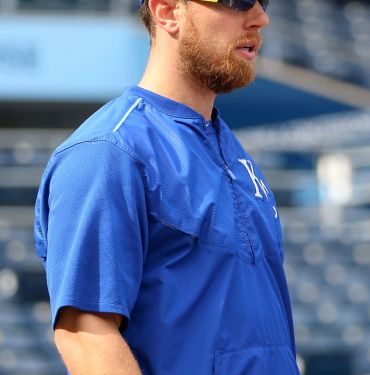Every July, the MLB trade deadline presents a tricky decision for teams across the league – to be buyers or sellers.
At about 100 games in, teams with a legitimate shot at making a postseason run typically look to acquire pieces that will make an immediate impact and improve their chances of winning this season, whereas teams in the midst of a disappointing and likely unsalvageable season try to deal off expiring contracts to pick up assets that will help them in the long-term. Many players who are set to be free agents three months later see their uniforms change overnight. Their team is willing to ship them elsewhere for whatever return they can recoup, because free agency is far from a sure bet for any team and trading a player for draft picks, minor-league prospects, backups, or journeymen is better than losing him for nothing.
Often high-profile players, these impending free agents are termed “rentals” due to the likelihood that after the last couple months of the season are over, these players will sign contracts with another franchise. This past 2015 season saw several teams acquire rentals for their respective playoff pushes.
The Toronto Blue Jays traded for starting pitcher David Price from the Detroit Tigers, who dealt off several of their most prized pieces who would become free agents at the end of the year. The Blue Jays, desperate to clinch a playoff berth for the first time since 1993, and in hopes of even making a deep postseason run, were willing to part with three pitching prospects in the exchange.
The Tigers also sent star outfielder Yoenis Cespedes packing, as he was traded for the fourth time in two seasons, this time to the New York Mets. The Mets, who initially were trying to pick up Carlos Gomez, dealt away two minor-league pitchers for Cespedes.
The Kansas City Royals went all in to put themselves over the top. After falling in seven games in the 2014 World Series to the San Francisco Giants and with the top seed in the American League within their reach, the Royals picked up ace Johnny Cueto from the Cincinnati Reds for three up-and-coming pitchers, as well as utility player Ben Zobrist from the Oakland Athletics for two more young pitchers and cash considerations.
The Blue Jays claimed the AL East title behind Price and company, and reached the ALCS before losing in six games. The Mets surged to the NL East title and rode their momentum all the way to the World Series before running out of steam. Finally, the Royals, with the help of Cueto and Zobrist, won their first title in thirty years.
For Toronto and New York, who had lengthy postseason droughts looming over their franchises, the additions of key players helped them reach October, and even advance to the Championship and World Series, respectively. For Kansas City, who needed just a couple of pieces to reach their ultimate goal, the results were impeccable, as the team brought home all the hardware.
For these teams, giving up promising prospects and cash considerations were well worth the impact players that they acquired in the deadline deals. Despite only having a rental period of about sixty regular season contests and their playoff run, the short period of time yielded great, if not perfect, results.
For Kansas City especially, a small-market team built on talented, affordable young players, a rental is a terrific solution, instead of building a roster by blowing a large portion of the budget on a star or two in free agency. And for those who say short-term rentals are never really worth the haul the team has to give up, look no further than this year’s champions.





